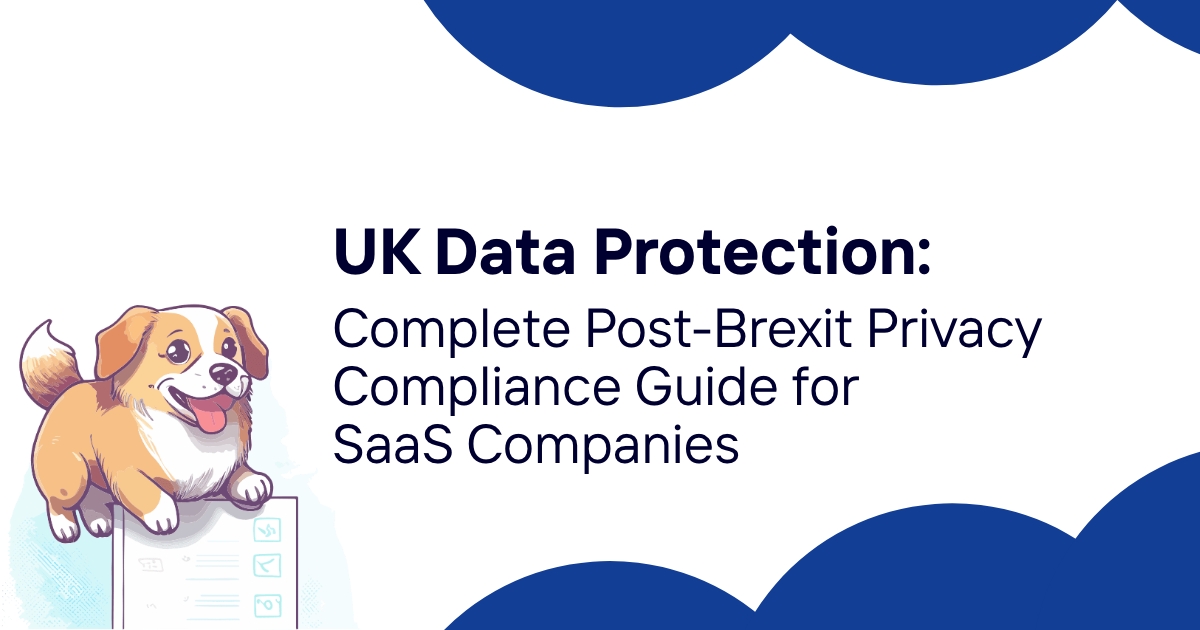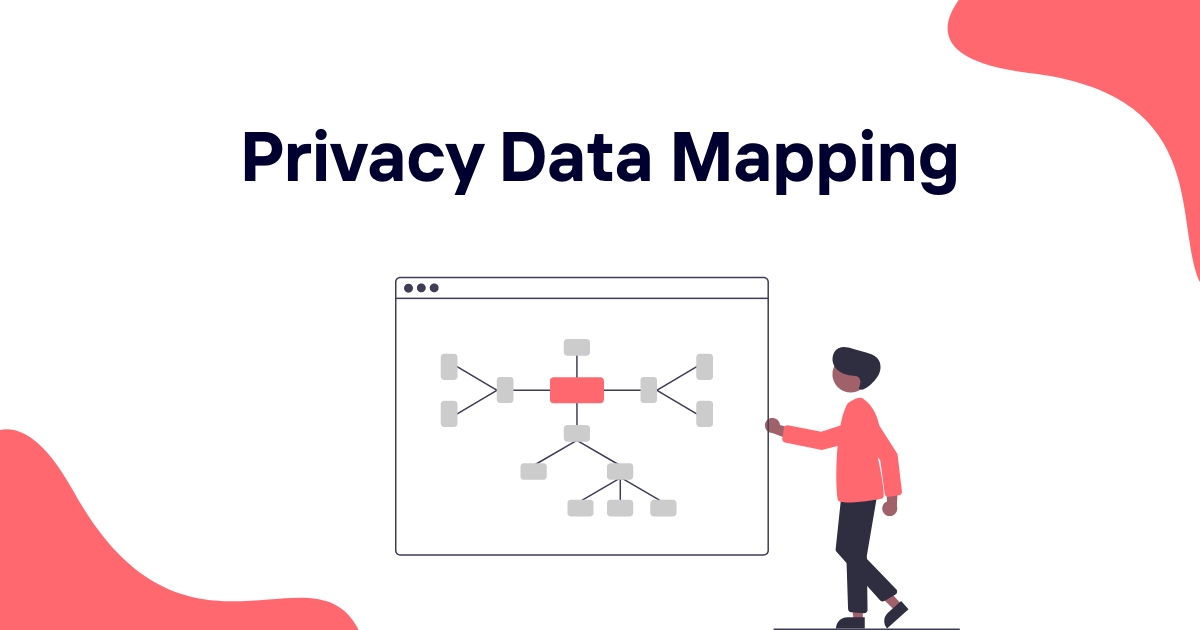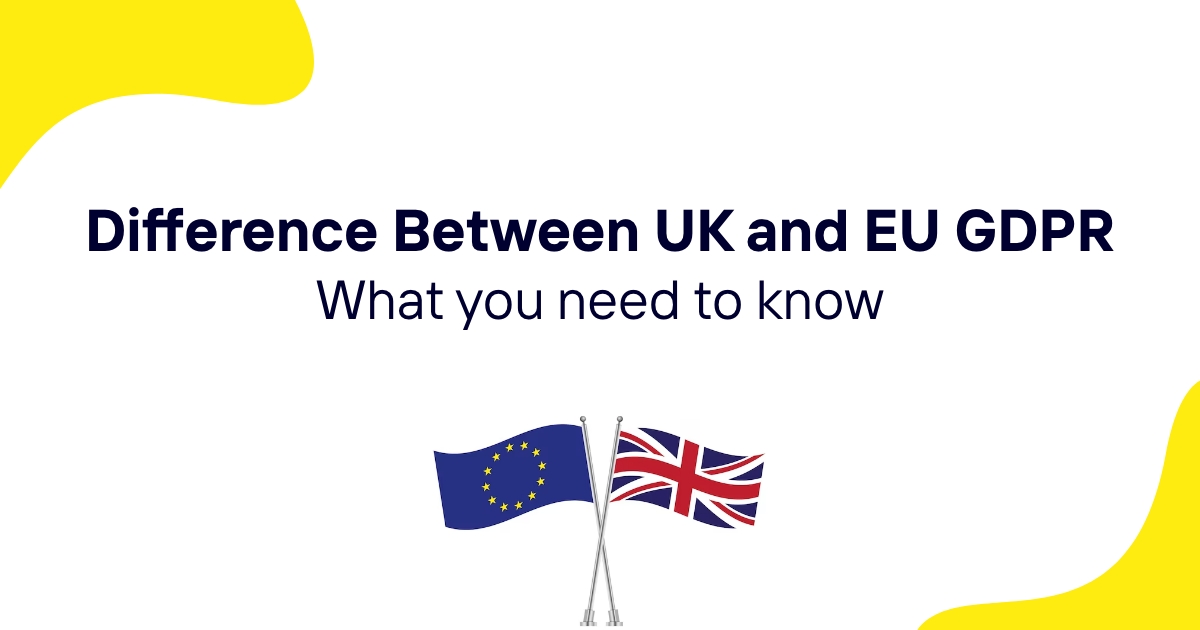Special category data represents the most sensitive types of personal information that businesses handle daily. From health records to biometric scans, these data types require heightened protection because they can fundamentally impact people's rights and freedoms.
When organizations process information revealing someone's race, religious beliefs, or medical conditions, they're dealing with data that could lead to discrimination or serious privacy violations if mishandled. The UK GDPR recognizes this risk and creates specific rules that go beyond standard data protection requirements.
Table of contents
- What constitutes special category data
- Why special category data needs extra protection
- The nine types of special category data
- Genetic data explained
- Biometric data requirements
- Health data scope and examples
- Criminal offence data distinction
- Processing special category data legally
- Article 9 conditions for processing
- Substantial public interest conditions
- Inferred special category data
- Practical compliance requirements
- Risk assessment and impact assessments
- Documentation and policy requirements
- Common compliance mistakes
- Streamlining compliance with software solutions
What constitutes special category data
The UK GDPR singles out nine specific categories of personal information that receive enhanced protection. These categories aren't arbitrary - they represent types of data that historically have been used to discriminate against individuals or violate their fundamental rights.
Special category data encompasses information that reveals or concerns deeply personal aspects of someone's identity or circumstances. The key word here is "revealing" - the data doesn't need to explicitly state something to qualify. Information that clearly indicates or strongly suggests details about these sensitive areas falls under the special category umbrella.
Think of it this way: if someone could reasonably infer protected characteristics about an individual from the data you're processing, you're likely dealing with special category information. This broad interpretation means businesses need to look beyond obvious examples and consider the broader implications of their data processing activities.
Why special category data needs extra protection
The heightened protection for special category data stems from historical misuse and the ongoing potential for discrimination. When organizations process information about someone's ethnicity, health status, or sexual orientation, they hold data that could fundamentally alter how that person is treated in society.
These data types connect directly to fundamental human rights protected under various legal frameworks. Processing someone's religious beliefs could impact their freedom of conscience and religion. Health data relates to bodily integrity and privacy rights. Political opinion data affects freedom of expression and association.
The risk-based approach of the UK GDPR recognizes that while other data types might be sensitive (like financial information), special category data poses unique threats to individual dignity and equality. Banks might discriminate based on credit scores, but that's different from discrimination based on race or disability status.
This explains why the legal framework requires dual justification for processing special category data. Organizations need both a standard lawful basis under Article 6 and a specific condition under Article 9. The law assumes this type of processing carries inherent risks that require additional safeguards.
The nine types of special category data
The UK GDPR lists nine specific categories that receive enhanced protection. Each category captures different aspects of human identity and experience that societies have historically used for discriminatory purposes.
Racial or ethnic origin includes any information that reveals someone's racial background or ethnic heritage. This could be explicit statements, photographs, names that suggest particular backgrounds, or data about participation in ethnically-specific organizations.
Political opinions covers information about someone's political beliefs, party membership, voting intentions, or participation in political activities. Social media posts expressing political views or attendance at political events would fall into this category.
Religious or philosophical beliefs encompasses information about someone's faith, spiritual practices, or deeply held worldview. This includes membership in religious organizations, dietary restrictions based on beliefs, or participation in religious ceremonies.
Trade union membership protects information about someone's participation in labor organizations. This category exists because union membership has historically been used to discriminate against workers or retaliate against organizing activities.
The remaining five categories - genetic data, biometric data, health data, sex life data, and sexual orientation data - receive specific definitions in the regulation due to their technical complexity or evolving nature.
Genetic data explained
Genetic data represents one of the most technically complex categories of special category information. The UK GDPR defines it as personal data relating to inherited or acquired genetic characteristics that provide unique information about someone's physiology or health.
The definition requires that genetic data results from analyzing biological samples. Simply having a biological sample doesn't create genetic data - you need to process that sample to extract genetic information. Once you analyze a DNA sample to determine genetic markers, you're dealing with special category data.
Not all genetic information automatically qualifies as personal data, though. If you've properly anonymized genetic sequences for research purposes and can't link them back to specific individuals, they may not constitute personal data at all. The test is whether you can reasonably identify someone from the genetic information.
Genetic data remains special category information even when you remove other identifiers like names or addresses. Genetic markers themselves can be unique enough to identify individuals, so removing other identifying information doesn't change the data protection classification.
The practical implications are significant for healthcare providers, research institutions, and companies offering genetic testing services. They need robust legal bases for processing and strong security measures to protect this highly sensitive information.
Biometric data requirements
Biometric data receives special protection only when used for identification purposes. The UK GDPR specifically defines it as personal data resulting from technical processing of physical, physiological, or behavioral characteristics that allow unique identification.
The identification requirement creates an important distinction. Taking a photograph of someone doesn't automatically create biometric data, even though photos can identify people. The data becomes biometric when you use technical processing to create identification templates or profiles.
Common examples include fingerprint scanning systems, facial recognition technology, iris scanning, and voice recognition systems. Behavioral biometrics like keystroke patterns or gait analysis also qualify when used for identification purposes.
Organizations using biometric identification systems need to carefully consider their legal basis. A gym using fingerprint scanners for member access processes special category data. Schools using biometric lunch payment systems handle special category information about their students.
The "identification purpose" requirement means that biometric data used for other purposes might not trigger special category protections. However, organizations should document their reasoning carefully and conduct risk assessments to ensure they're not inadvertently processing special category data.
Health data scope and examples
Health data encompasses the broadest range of information among the special categories. The UK GDPR defines it as personal data related to physical or mental health, including healthcare service provision, that reveals health status information.
The definition extends far beyond medical records. Any information that reveals something about someone's health condition qualifies. This includes fitness tracker data, appointment schedules for medical services, pharmacy records, and even workplace absence records if they indicate health issues.
Health data covers past, present, and future health status. Genetic test results indicating disease risks qualify, as do historical medical records and current treatment information. The key test is whether the data reveals something about someone's health condition.
Some examples might surprise organizations:
- A series of physiotherapy appointments suggests musculoskeletal issues
- Prescription records reveal specific medical conditions
- Workplace wellness program participation might indicate health concerns
- Insurance claims for medical services show health status
- Employee sick leave patterns could reveal ongoing health conditions
Healthcare identifiers like NHS numbers also constitute health data when combined with other information revealing health status. The identifier itself might not reveal health information, but in context with medical appointments or treatments, it becomes special category data.
Criminal offence data distinction
Personal data about criminal allegations, proceedings, or convictions doesn't qualify as special category data under the UK GDPR. Instead, it receives separate treatment under different legal provisions that recognize its unique characteristics.
Criminal offence data includes information about criminal charges, court proceedings, convictions, and related legal processes. While this information can be sensitive and carry significant implications for individuals, it operates under different legal frameworks than special category data.
The distinction matters for compliance purposes. Organizations processing criminal offence data need different legal bases and safeguards compared to those handling special category data. The processing conditions and restrictions differ significantly between these two data types.
However, some overlap can occur. Information about crimes motivated by hate or discrimination might reveal special category details about victims or perpetrators. Organizations need to carefully analyze their data to identify all applicable protections and requirements.
Processing special category data legally
Processing special category data legally requires dual justification under the UK GDPR. Organizations must identify both a lawful basis under Article 6 and a specific condition under Article 9. These requirements work independently - you need both, but they don't have to align perfectly.
The dual requirement reflects the heightened risks associated with special category data. Standard lawful bases like legitimate interests might justify processing ordinary personal data, but special category data needs additional justification to ensure the processing is appropriate and necessary.
Organizations often struggle with this dual requirement because they assume the justifications must match. In practice, you might rely on legitimate interests under Article 6 while using the substantial public interest condition under Article 9. The key is ensuring both requirements are genuinely met.
Before processing special category data, organizations should conduct necessity assessments. Can you achieve your objectives without processing this sensitive information? Is there a less intrusive alternative? The law expects organizations to minimize special category data processing where possible.
Article 9 conditions for processing
Article 9 provides ten specific conditions that permit special category data processing. Five conditions are self-contained within the regulation, while five others require additional authorization under UK law.
Explicit consent allows processing when individuals provide clear, informed agreement. This consent must be more specific than standard consent requirements and should clearly identify the special category data types being processed.
Vital interests permits processing when necessary to protect someone's life or physical integrity. This condition has a high threshold and typically applies in emergency situations where consent isn't practical.
Not-for-profit bodies can process member data for their legitimate activities, provided the processing relates to members or former members and doesn't involve disclosure to third parties without consent.
Made public by the data subject allows processing information that individuals have deliberately made publicly available. However, organizations should consider whether subsequent processing remains fair and proportionate.
Legal claims or judicial acts covers processing necessary for legal proceedings, legal advice, or the establishment, exercise, or defense of legal rights.
The remaining five conditions require specific authorization under UK law through the Data Protection Act 2018. These include employment purposes, health and social care, public health, substantial public interest, and archiving/research purposes.
Substantial public interest conditions
The substantial public interest condition under Article 9(2)(g) provides flexibility for processing that serves broader societal benefits. The Data Protection Act 2018 identifies 23 specific substantial public interest conditions that organizations can rely on.
These conditions cover diverse scenarios from statutory functions to anti-doping in sport. Each condition has specific requirements about necessity, proportionality, and safeguards that organizations must meet.
Some conditions focus on equality and anti-discrimination work. Organizations can process special category data to monitor equal opportunities, prevent discrimination, or promote diversity in senior roles. These conditions recognize that sometimes you need to process sensitive data to combat the very problems that data protection law seeks to prevent.
Other conditions support regulatory functions, fraud prevention, and safeguarding activities. Insurance companies can process health data for underwriting purposes. Financial institutions can process data to detect money laundering. Child protection services can process sensitive information to safeguard vulnerable individuals.
The public interest element must be substantial and demonstrable. Organizations can't rely on vague or speculative public benefits. The condition requires concrete evidence that the processing serves important societal objectives that outweigh individual privacy interests.
Inferred special category data
Special category data includes not only explicit information but also inferred details about individuals. If organizations intentionally draw conclusions about someone's protected characteristics or treat them differently based on those inferences, they're processing special category data.
The focus is on intent rather than accuracy. If your social media platform infers political opinions to target advertisements, you're processing special category data regardless of whether those inferences are correct. The act of intentional inference triggers the special category protections.
This principle has significant implications for profiling and automated decision-making systems. Companies using algorithms to infer ethnicity, health conditions, or sexual orientation from behavioral data must comply with special category data requirements.
However, not all potential inferences create special category data. Simply holding information that others might use to infer protected characteristics doesn't automatically trigger these requirements. The key test is whether your organization intentionally makes or acts upon such inferences.
Organizations should document their inference practices and ensure they have appropriate legal bases for any intentional profiling involving special categories. This includes clear policies about what inferences they make and how they use that information.
Practical compliance requirements
Complying with special category data requirements involves multiple operational changes across organizations. Documentation becomes critical - you must record what special category data you process, why you process it, and which legal conditions you rely on.
Data protection impact assessments (DPIAs) become more likely when processing special category data. The inherent risks associated with this information mean that processing will often qualify as "high risk" and trigger mandatory DPIA requirements.
Privacy notices must specifically address special category data processing. Individuals need clear information about what sensitive data you collect, why you collect it, and what legal basis you rely on. Generic privacy notices rarely provide sufficient transparency for special category data.
Security measures require heightened attention for special category data. While the UK GDPR doesn't mandate specific technical measures, the sensitive nature of this information demands appropriate organizational and technical safeguards proportionate to the risks.
Staff training becomes essential when organizations handle special category data. Employees need to understand the heightened requirements and their responsibilities for protecting sensitive information. Regular training helps prevent inadvertent violations and ensures consistent application of policies.
Risk assessment and impact assessments
Special category data processing typically requires comprehensive risk assessments that go beyond standard data protection considerations. Organizations must evaluate not only privacy risks but also discrimination potential, stigmatization possibilities, and broader societal impacts.
DPIAs for special category data should address the fundamental rights implications of processing. How might the processing affect individual dignity, equality, or freedom from discrimination? What safeguards can minimize these risks while enabling necessary processing?
Risk assessments should consider both direct and indirect effects of processing. Direct effects include immediate impacts on the individuals whose data you process. Indirect effects might include broader societal implications or impacts on groups sharing protected characteristics.
The assessment should evaluate alternative processing methods that might achieve similar objectives with lower risks. Can you use aggregated data instead of individual records? Could you process non-sensitive proxy data that correlates with the special category information you need?
Organizations should regularly review and update their risk assessments as processing activities evolve. Changes in technology, business practices, or legal requirements might alter the risk profile and require additional safeguards.
Documentation and policy requirements
Many special category data processing activities require appropriate policy documents under UK law. These documents demonstrate that organizations have considered the privacy implications and implemented necessary safeguards for their processing activities.
Appropriate policy documents must identify the special category data being processed, explain the purposes and legal basis for processing, and describe the safeguards implemented to protect individual rights. They serve as evidence that organizations have conducted proper assessments before beginning processing.
The documents should address data minimization measures, explaining how the organization limits special category data processing to what's necessary for their objectives. They should also describe retention policies and deletion procedures for sensitive information.
Regular policy reviews ensure that documented procedures remain current and effective. Organizations should update their appropriate policy documents when processing activities change or when experience reveals gaps in existing safeguards.
Record-keeping requirements extend to special category data processing activities. Organizations must document their processing activities, including the categories of special category data they handle and the legal conditions they rely on.
Common compliance mistakes
Organizations frequently underestimate the scope of special category data in their processing activities. Health data extends beyond obvious medical records to include any information revealing health status. Biometric data includes behavioral patterns used for identification, not just fingerprints and facial recognition.
Another common mistake involves relying on inappropriate legal conditions for processing. Organizations might assume that legitimate interests justify special category data processing, but Article 9 requires specific conditions that legitimate interests alone cannot satisfy.
Inference processing creates particular compliance challenges. Organizations using data analytics to profile individuals often fail to recognize when their activities cross into special category territory. If you're inferring protected characteristics to make decisions about people, you're likely processing special category data.
Consent management poses ongoing challenges for special category data. Organizations must ensure that consent is truly explicit and specific to the special category processing. Generic consent statements rarely meet the heightened requirements for sensitive data processing.
Third-party data sharing arrangements frequently overlook special category data requirements. When you share sensitive information with vendors, partners, or service providers, both parties need appropriate legal bases and adequate safeguards for the processing.
Streamlining compliance with software solutions
Managing special category data compliance manually becomes increasingly complex as organizations grow and data processing activities multiply. Compliance software platforms provide systematic approaches to identifying, documenting, and protecting special category data across business operations.
Modern compliance tools help organizations map their data flows to identify where special category information enters, moves through, and exits their systems. This visibility enables better risk assessment and more targeted protection measures for sensitive data types.
Automated monitoring capabilities can flag potential special category data processing activities that might otherwise go unnoticed. This early detection helps organizations implement appropriate safeguards before privacy violations occur.
Compliance platforms often include templates and workflows for creating appropriate policy documents, conducting DPIAs, and maintaining required documentation. These standardized approaches reduce the administrative burden while ensuring consistent compliance across different processing activities.
ComplyDog provides comprehensive tools for managing special category data requirements within an integrated compliance platform. From automated data mapping to policy document generation, ComplyDog helps organizations maintain ongoing compliance with UK GDPR requirements while focusing on their core business objectives. The platform's risk assessment capabilities and monitoring features ensure that special category data receives appropriate protection throughout its lifecycle, reducing compliance complexity for growing software businesses.


















